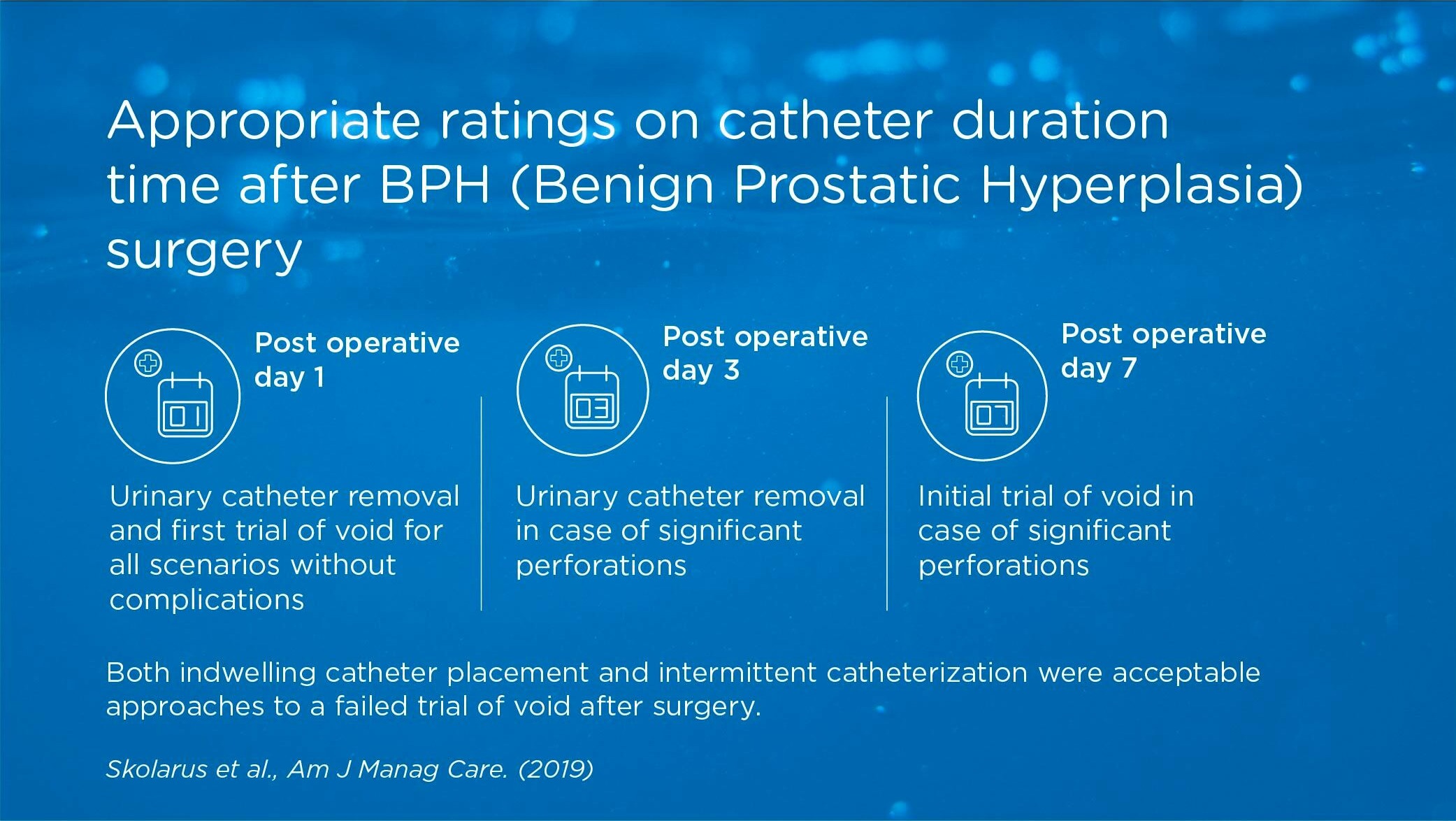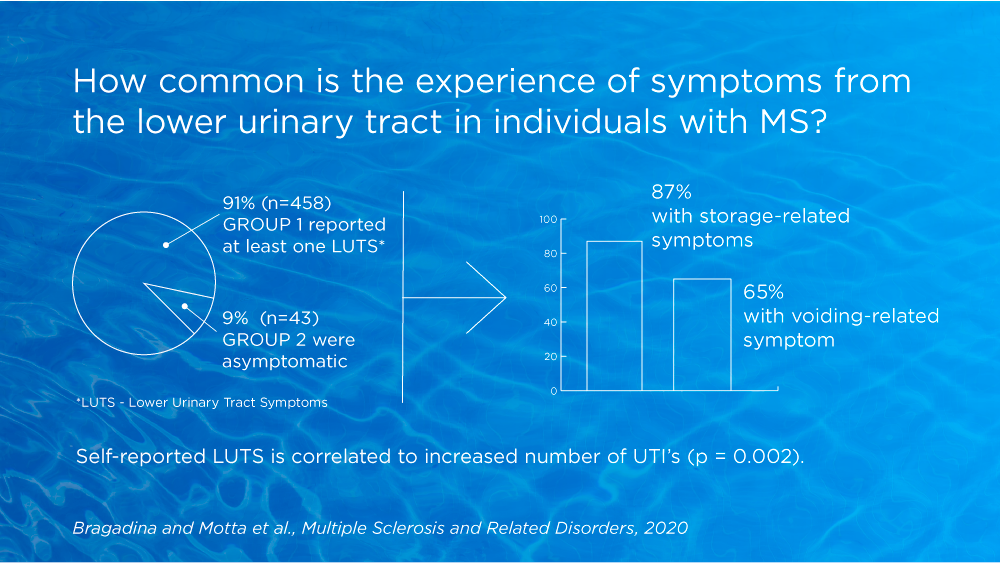Although urethral catheter placement is routine after surgical procedures of benign prostatic hyperplasia (BPH), no guidelines inform duration of catheter use.
Results from ratings provided by a multidisciplinary panel offer guidance in decreasing practice variation thereby reducing postoperative risks and improving the consistency and quality of care for patients undergoing surgery.
Topics: Lower Urinary Tract Symptoms (LUTS), Benign Prostate Hyperplasia
Storage and voiding symptoms often coexist, affecting up to 59% of individuals with MS. These clinical manifestations impact quality of life and are often associated with depressive symptoms, loss of work productivity, poor sleep quality and, in general, a deterioration in overall health. Problems related to micturition impede many people with MS from fully participating with family, friends and the community.
Read MoreTopics: Neurogenic bladder, Lower Urinary Tract Symptoms (LUTS), Bladder dysfunction, Multiple Sklerose (MS)
Intermittent catheterization is today a first choice therapy for people with neurogenic or non-neurogenic lower urinary tract dysfunction related to incomplete bladder emptying. In recent years, the evidence for the safety of catheter reuse has been debated.
Read MoreTopics: Clean Intermittent Catheterization (CIC), Neurogenic bladder, Lower Urinary Tract Symptoms (LUTS)






